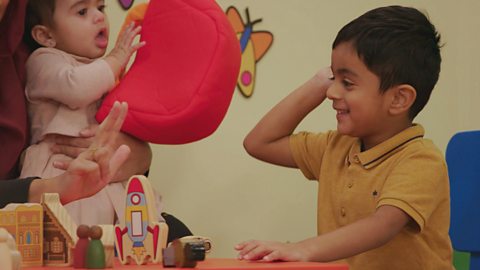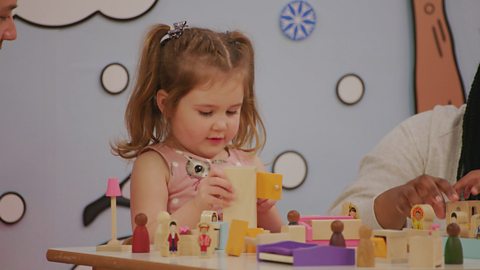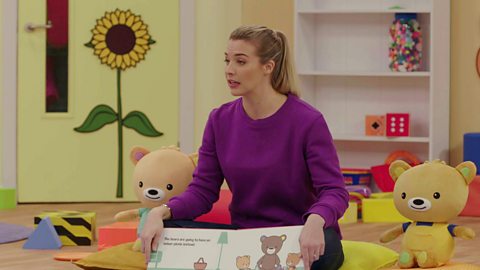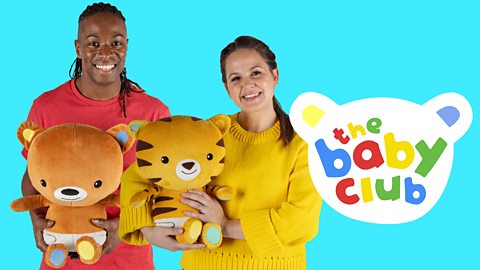Creative activities and play help toddlers explore and express emotions, develop imagination, and practise social skills.
We chatted to speech and language therapist Francesca all about how you can help your child get the most out of their creative play.
Watch the video below to see her advice in action at the Toddler Club.
Try to join in and copy the words your child says and expand on what they say.
This will help them turn their words, into sentences.
Like Carella and her mom, this kind of language use, will help your child talk in sentences.
If you do ask a question, try to leave a long pause for your child to respond.
Give it a go and next time, your child might surprise you.
Like Addison, your child's brain is just like a sponge at this age. So with support from you, your toddler will learn new words as they play.
If you're not sure what activity to try. Think about what your child enjoys. Do they like playing inside or outside? Do they like making music or sharing stories? You don't need much to be creative.
Everyday household items can make great toys.
Playing with pots and pans you already have, like Joshua and his dad here, is a great way to play with your child without spending any money.
Your child's daily routine is full of learning opportunities. So think about things, like hand gestures, tone of voice, facial expressions, when you're communicating with them.
Like Helene's mom, you could build excitement during play.
If we, as parents, talk interestingly to our children, the more likely it will be for them to chat back to us.
Francesca's top tips for creative play
- If you're not sure what activity to try, think about what your child enjoys.
- You don't need much to be creative. Everyday household items can make great toys.
- Everything can be a fun play opportunity for your child if you use exciting hand gestures, tone of voice and facial expressions.
- Try to join in and copy the words your child says, then expand on what they say.
- Your toddler’s brain is like a sponge, so take any opportunity to talk with them. You will be surprised by how much they copy.
- Remember to always let your child lead in play. Follow the toys they want to play with rather than guiding them to the toys you want.

Asking toddlers questions in play
When you play with your little one, keep an eye on the amount of questions you ask them.
The more questions you ask, the more you are leading your child to your way of thinking rather than letting their imaginations roam free.
Have a set five minutes “play time”, and in that five minutes, see if you can get rid of all questions and instead make comments.
Here are some examples of what you could say instead of questions:
- Instead of, “How many apples in the basket?” try, “You have 6 apples in your basket.”
- Instead of, “What is this called?” try, “This is lovely spaghetti!”
- Instead of, “Can I have a donut in my basket?” try, “I would love a donut.”
If you are struggling to reduce questions, you could use the phrase, “I wonder…”. This is a really nice way to expand talking without putting too much pressure on your toddler. They might answer, or they might not.
If you do ask a question while your child is playing, leave a pause for them to respond – up to 10 seconds if you need to. Your child might surprise you!

Top tips for playing with 2-year-olds
As your toddler's language grows, there are lots of little things you can do to help them:
- How can you help toddlers say words properly? We looked into it in our Speech Lab.
- Find out why expanding on toddlers' words is so important.
- Play is a huge part of learning for toddlers. But how do toddlers learn through play?
Want more? You can watch the full series of The Toddler Club on BBC iPlayer right now!






